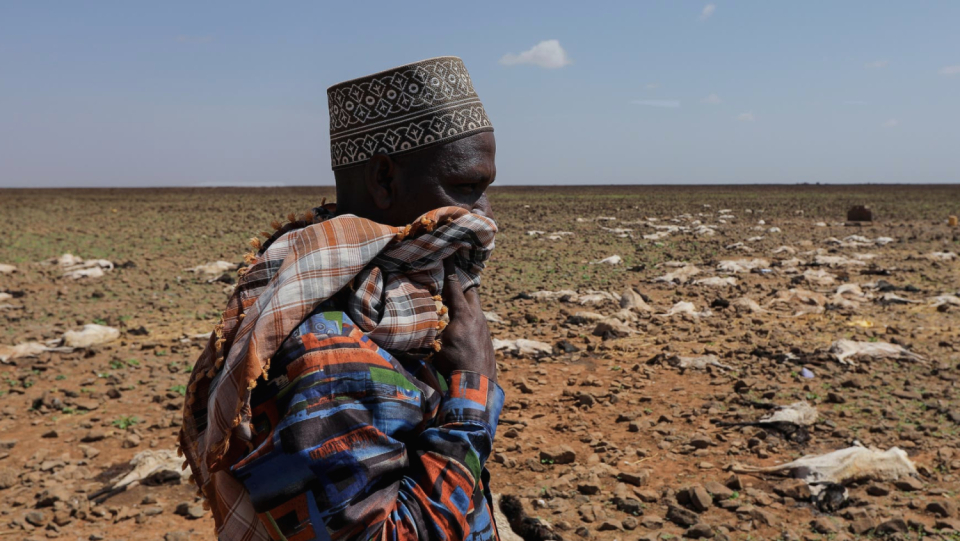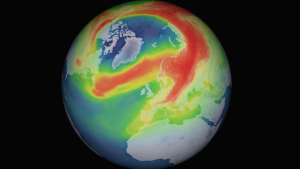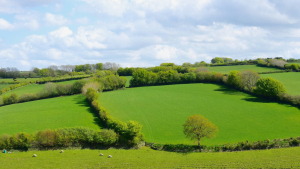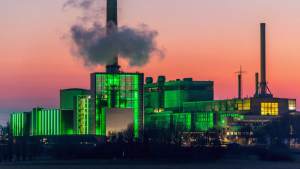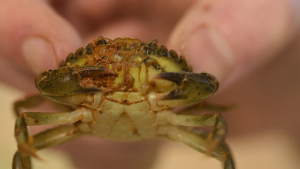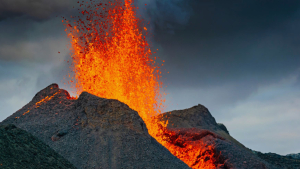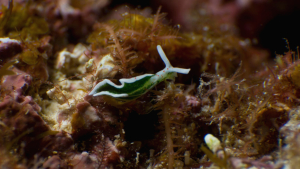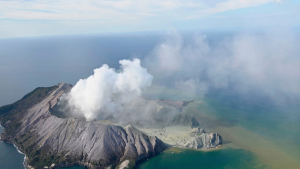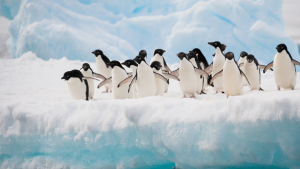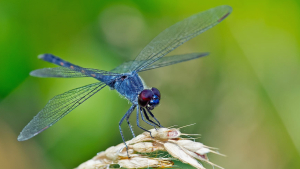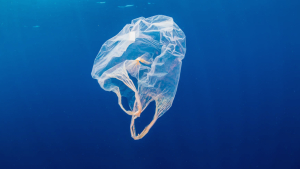In the north of Kenya as well as in many regions of Somalias and Ethiopia, the worst drought has been in place for 40 years. According to the United Nations (UN), around 17 million people have too little to eat on the Horn of Africa. The number could increase to 20 million by September 2022. However, the drought is not the only reason for the nutritional crisis, says the agricultural economist Timothy Njagi. He researches at the Tegemeo Institute of Agricultural Policy and Development in the Kenyan capital Nairobi. In the interview, he talks about the role of the European Union and its "Green Deal" and explains what the member states could do in the future to improve care in Africa - not only in the current crisis, but in the long term.
"Riffreporter.de ": What are the reasons for the current food crisis in East Africa?
Timothy Njagi: Even in the best years, the region does not produce enough food to be able to feed the population from their own production. There is also a heavy drought at the moment. So we are always, but now especially dependent on imports. Specifically on sellers who have supplies and are able to send them to us. As is known, this has become difficult due to the war in Ukraine. Before that, the supply chains were partially interrupted by the Corona pandemic. Because we always have to import food, trade policy is very important for us. We rely on the fact that goods - food - can be transported quickly and efficiently. And of course there are political obstacles in normal times.
What is the role of the EU?
Agricultural programs that were funded by the EU have mainly focused on technologies that wanted to promote Europe in Africa. These programs were successful in different degrees. In some regions they worked quite well, not anywhere else.
What kind of technologies or programs do you mean?
For example, the EU promoted the dairy industry and intensification of dairy farming. But that only uses a small group of producers in Kenya. Some of them were able to significantly increase their productivity thanks to these programs, but the majority of cattle farming take place in Kenya under different conditions. Namely in semi -dry regions, there is only extensive livestock farming because of the climatic conditions. There were also some successes in horticulture, for example with tomatoes. But we have to do a lot more and with other types of vegetables.
We are grateful for the support we have received. Especially in the construction of value chains, i.e. the processing of food here with us. This is important so that the farmers can earn their living and afford on the market what they do not grow or produce. The EU is one of our most important markets, especially for some cultivated products such as French beans. Ideally, we should ensure that our farmers are able to produce competitively and meet the standards that are required on the EU market.
Do you find EU trade policy to Africa as fair?
No, she's not fair. One problem is that the EU imposes some requirements on agricultural products that are far higher than what all other markets require. See the "Green Deal".
So the concept that EU Commission President Ursula von der Leyen presented in December 2019. The goal is to make Europe climate -neutral by 2050. The plan contains new agricultural standards under the keyword "Farm to Fork": The EU would like to take the leadership to set global nutritional standards.
Exactly. The deal includes the requirement that we must produce organically. But our agriculture has not been that efficient so far. If we wanted to produce most of the food organically, we would have to pay farmers much more for their products. Consumers in the EU would probably not accept these higher costs. In extreme cases, this would mean that many farmers would lose their livelihoods. That's the one.
The other is obvious contradictions: the EU is number two when importing pesticides into the region. So it would make sense that Europe initially hires the sale of pesticides to Africa and then only demands that we grow biologically. Selling pesticides that Europe itself does not accept is a contradiction that you have to point out.
Do you have an idea of how much more expensive the ecological production would be for the farmers in Kenya?
No, we still have to do a study to compare this. Organic farming is still quite a niche market for us. But we are already only competitive to a limited extent with conventional production methods. For most products, there are other farmers who produce at a much lower cost than we do. So we assume that the organic market would completely overwhelm many of our farmers, because it would be irrational to expect that a farmer who is not competitive with the conventional method could be competitive in organic farming. Organic farming is technically more demanding than conventional production.
I was not aware that the "Farm to Fork" strategy in the "Green Deal" would mean that what the EU imports must also be organically produced.
Yes, at least part of it. We would at least have to allocate a much larger area to organic farming than we have now. Farmers are switching to organic farming if they have higher profit margins as a result. Why don't we work with economic incentives instead of political pressure? In Kenya, organic farmers can achieve twice as high prices with their products as with conventional products. But if we want to enforce the change by force, we create a problem. Because there are people who, for financial reasons, have to pay more attention to the price of food than to the way it is produced. This must be taken into account in political decisions.
You have addressed food safety that Europe wants to achieve according to the Green Deal. According to a study by Greenpeace and Public Eye, many pesticides from the EU are also sold to Africa, the application of which has already been banned in Europe.
Basically, they sell us something and then say, "Don't use that! At least not if you want to sell us the final product." If Europe stopped selling these pesticides to us, but we continued to source them from China, then I would be able to better understand the European rules. There is also something else: our farmers use pesticides because they are afraid of crop failures, and some of them are really significant. The EU now has new technologies with which it can replace or greatly reduce the use of pesticides. These technologies are not available in Kenya. Why can't the EU promote the use of these technologies in Africa?
What kind of technologies?
Biological pest control in combination with IT. An example: In Germany there is a surveillance system for controlling pests, for example, the extremely destructive Herbst army worm. It is 100 percent organic. The technology helps to settle the predators of the pests exactly where the pest is. The problem: everything stands and falls with precision. If you throw off the predator 24 hours too late, you have a big crop loss.
We in Kenya do not have this technology. We do not expect Europe to simply provide us with the knowledge. But why couldn't we strengthen the partnership in the field of science? For example, between the universities in Germany that have developed this technology and our universities? Based on what has already been built in Germany, they could develop local solutions that are adapted to the local conditions and work just as well. Without just copying and transferring what is used elsewhere.
From a global perspective, what could a just system of food security look like? Also in view of the consequences of the climate crisis, the war in Ukraine and similar developments?
Some countries already prohibit the export of food due to global scarcity. I can understand that. If Kenya produced surpluses, we would probably also want to make sure that our population has enough to eat before we export. But I think that we should ideally promote sustainable production worldwide. Because every country is able to produce something particularly well that someone else needs. So we have to eliminate the trade barriers, especially for food.
In Kenya, we can produce some products very well and cheaply, but not corn, for example. Even within the region, Uganda will probably always produce corn cheaper than we do. But Kenya can produce dairy products much cheaper. We should ensure that the cost-effective exchange of goods remains possible through efficient trade and logistics systems without artificial political hurdles.
Do Russia and China benefit from the fact that wheat and other types of cereals on the world market are scarcer and will wheat strategically use so that new political blocks form?
I think this concern is justified. But the current situation can also be an opportunity for the rest of the world. Russia is of great importance as an exporter of wheat, especially for African countries. We have to think about how we can end this excessive dependency on a country. How can we increase our own production so that we are no longer so dependent on Russia? But that takes some time. In fact, it is in fact that people in many countries of the African continent have the feeling that they have to decide with China between West and Russia. And maybe they prefer to choose Russia rather than develop their own production.
What options do you see?
Let's take Kenya as an example. We will probably not be able to grow wheat ourselves under any circumstances in the quantities that we currently consume. But we are now rediscovering foods that our grandfathers and grandmothers ate and that we stopped consuming at some point. These are foods such as cassava, millet or sorghum, which are very well adapted to the climatic conditions here. In the course of urbanization, we abandoned them. We need to think about how we can create a market for these foods again. We can see in Latin America that this is working. Quinoa is now even available in Nairobi. We could try, for example, to promote the cultivation of cassava again and also to export it.
© Riffreporterder Text has originally been published on »riffreporter.de« under the title »Africa, Europe and the Global Nutritional Crisis: Which Way to Food Safety?« Was published and supplemented.







